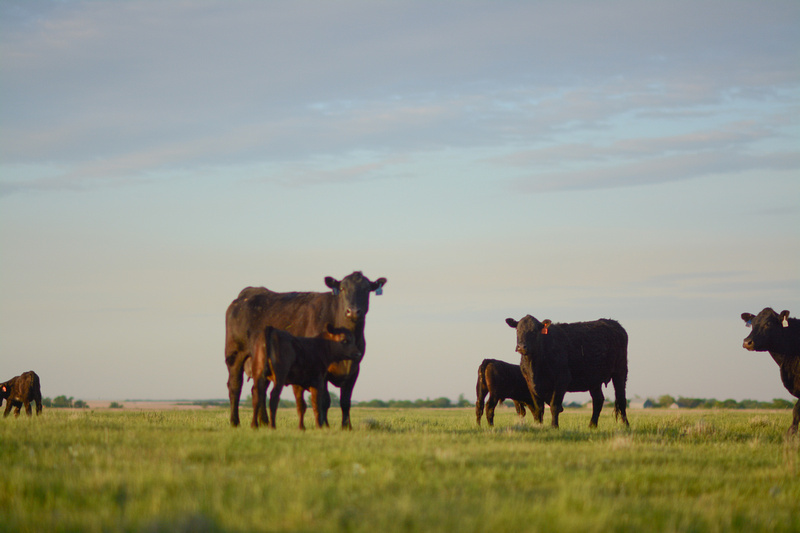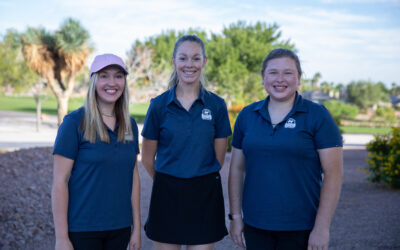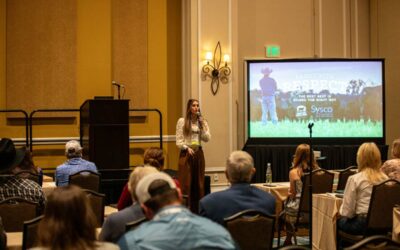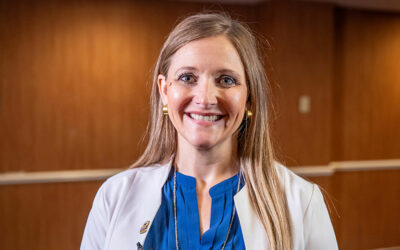
Air, water quality keynote Feeding Quality Forum
by Miranda Reiman
“Going green” is a stirring buzz phrase everywhere, no less in cattle feeding.
Some shudder as they think of the regulations it entails. Others argue that agriculture is the original green industry and producers are closer to the land and natural resources than anybody else.
Frank Mitloehner, University of California-Davis, is an expert in how that term applies to those involved in livestock production. He’ll share research findings and insights from growing up in Europe to working on the U.S. West Coast with attendees at the annual Feeding Quality Forum.
The meetings are set for Aug. 23 in Omaha, Neb., and Aug. 25 in Garden City, Kan.
“I have a lot of research data, both in the area of air quality but also climate change, that will help show where they stand and what they need to do to be ‘green,’ so to speak,” he says. “Producers have to view this whole area in a proactive way, and address issues before they run into trouble with the law or the activist groups.”
The combination of lab facilities and a highly qualified staff give Mitloehner a unique arsenal of facts.
“We have found that some of the allegations out there are not in agreement with our research findings on campus,” he says.

California generally provides the test case for what kind of rules are coming down the pike for those in the Midwest, the professor notes. Air and water quality are in the spotlight in his state.
“They have to obtain permits to make any changes to their operation,” Mitloehner says. “If you want to put up a new shade in your corral, you have to get an air permit for that.”
Both government and activist organizations are trying to enforce this policy.
“Fines can be pretty significant, but the other issue is that there are groups like the HSUS (Human Society of the United States) and others that sue producers they feel are not compliant with current regulations,” he says.
Right now, there are half a dozen such lawsuits in California.
“We’re talking about very large sums of money,” Mitloehner says. Even when they’re not successful, the “attempt itself is scary, particularly because if even one of them is successful, it sets precedence.”
Education and an open dialog are the best tools cattlemen can use, he says.
“Many producers think, ‘We know what’s best for our animals. We know what’s best for the environment and we don’t want people to meddle with it.’ But those days are over,” he says, “because the public wants to know where their food comes from.”
To hear Mitloehner’s presentation in person, register for the upcoming forum at www.feedingqualityforum.com or call Marilyn Conley at 800-225-2333, ext. 298.
The seminars are sponsored by Pfizer Animal Health, Land O’ Lakes Purina Mills, Feedlot magazine and CAB.
You may also like
$100,000 Up for Grabs with 2024 Colvin Scholarships
Certified Angus Beef is offering $100,000 in scholarships for agricultural college students through the 2024 Colvin Scholarship Fund. Aspiring students passionate about agriculture and innovation, who live in the U.S. or Canada, are encouraged to apply before the April 30 deadline. With the Colvin Scholarship Fund honoring Louis M. “Mick” Colvin’s legacy, Certified Angus Beef continues its commitment to cultivating future leaders in the beef industry.
Raised with Respect™ Cattle Care Campaign Launched This Fall
Raised with Respect™ was developed as part of a strategic cattle care partnership between Sysco and CAB. The collaboration focuses on supporting farmers and ranchers, equipping them with continuing education to stay current on best management practices and helping to increase consumer confidence in beef production.
Quality Wins, Again
Sara Scott, Vice President of Foodservice for Certified Angus Beef, emphasizes the importance of taste over price in the beef market during the Feeding Quality Forum. As consumer demand for high-quality beef grows, Scott highlights the need for increased supply and encourages communication with packer partners to meet the demand for Prime beef.



